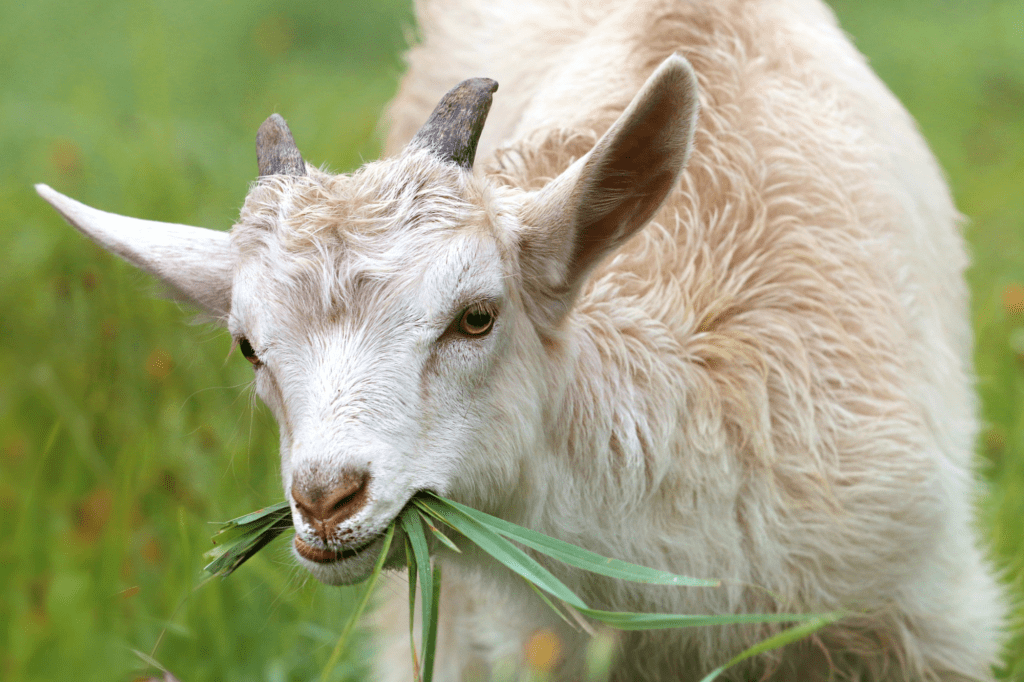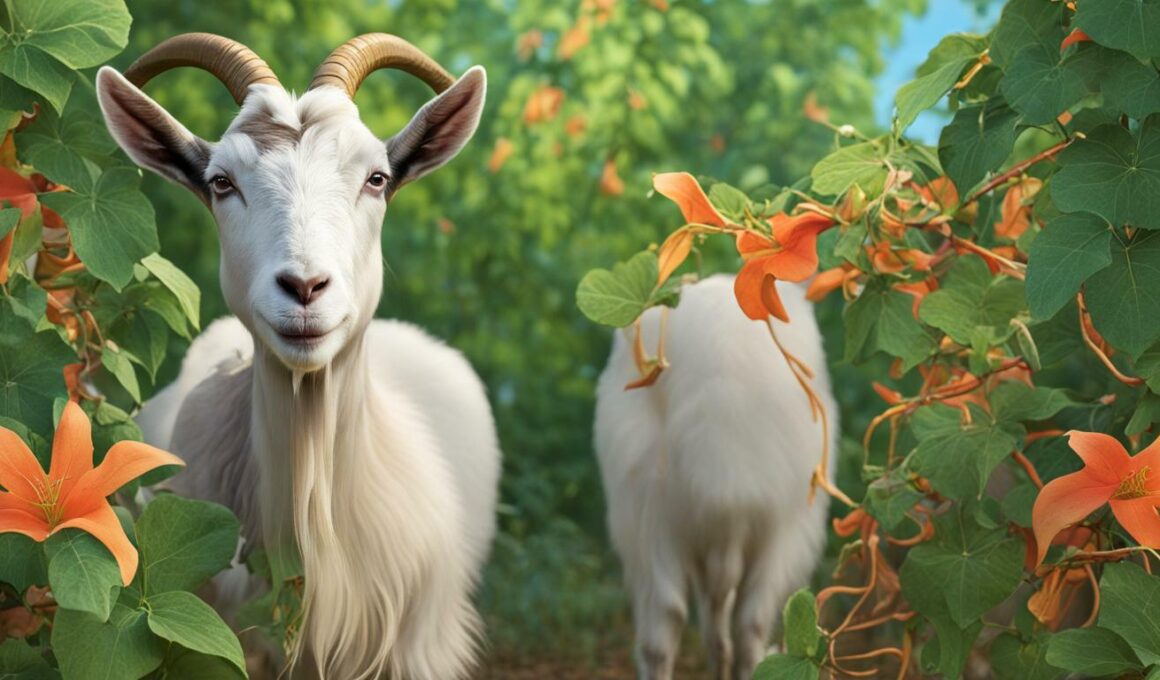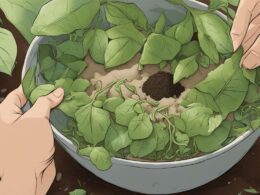Key Takeaways
- Goats should not be fed trumpet vine as it can be toxic, leading to various health problems.
- Regular consumption of trumpet vine can cause digestive upset, kidney damage, skin irritation, and severe allergic reactions.
Potential Risks of Goats Eating Trumpet Vine
If you are considering feeding trumpet vine to your goats, there are a few potential risks you should be aware of. While goats are known to nibble on various plants, consuming trumpet vine can pose health risks for them. Trumpet vine contains toxic compounds known as terpenoids that can be harmful to goats. These toxins can cause symptoms like vomiting, diarrhea, abdominal pain, and even respiratory distress in some cases. In severe cases, trumpet vine toxicity can lead to death.
Another potential risk of feeding trumpet vine to goats is the plant’s ability to cause choking. The trumpet vine’s pods and seeds are known to cause obstructions in the goat’s throat, leading to difficulty breathing and a potentially life-threatening situation.
Trumpet vine contains toxic compounds known as terpenoids that can be harmful to goats. These toxins can cause symptoms like vomiting, diarrhea, abdominal pain, and even respiratory distress in some cases. In severe cases, trumpet vine toxicity can lead to death.
Another potential risk of feeding trumpet vine to goats is the plant’s ability to cause choking. The trumpet vine’s pods and seeds are known to cause obstructions in the goat’s throat, leading to difficulty breathing and a potentially life-threatening situation.
Potential Risks of Goats Eating Trumpet Vine
“Goats who eat trumpet vine can experience symptoms such as vomiting, diarrhea, abdominal pain, and even respiratory distress in severe cases, which may ultimately lead to death.”It is important to ensure that your goats do not have access to trumpet vine, as it can be difficult to detect and can easily grow in your yard or pasture. If you suspect that your goats have consumed this plant, it is important to contact your veterinarian immediately.
 When it comes to feeding your goats, it is always best to err on the side of caution. Avoid feeding them any plants that could pose a risk to their health, including trumpet vine. Instead, focus on providing them with a balanced diet that meets their nutritional needs and includes safe plants like grass, hay, and vegetables.
By understanding the potential risks of feeding trumpet vine to goats, you can take steps to ensure their safety and well-being.
When it comes to feeding your goats, it is always best to err on the side of caution. Avoid feeding them any plants that could pose a risk to their health, including trumpet vine. Instead, focus on providing them with a balanced diet that meets their nutritional needs and includes safe plants like grass, hay, and vegetables.
By understanding the potential risks of feeding trumpet vine to goats, you can take steps to ensure their safety and well-being.
Suitable Plants for Goats and Their Diet
Providing a healthy and balanced diet is essential for ensuring your goats’ well-being. When it comes to selecting plants for their diet, it’s important to choose ones that are safe and suitable for them to eat. Some of the best plants to include in a goat’s diet are:- Alfalfa
- Timothy
- Bermuda grass
- Orchard grass
- Clover
- Bluegrass
- Black walnut
- Poison ivy
- Red maple leaves
- Yew
- Rhododendron
Is Trumpet Vine Safe for Rabbits to Eat as Well?
Is Trumpet Vine safe for rabbits to eat as well? Safety tips for bunny owners include being cautious about the plants they allow their pets to nibble on. While trumpet vine may be visually appealing, it is not recommended for rabbit consumption. This plant contains toxic compounds that can cause digestive issues or even be fatal for bunnies. Ensuring a safe and rabbit-friendly environment means keeping potentially harmful plants out of their reach.









